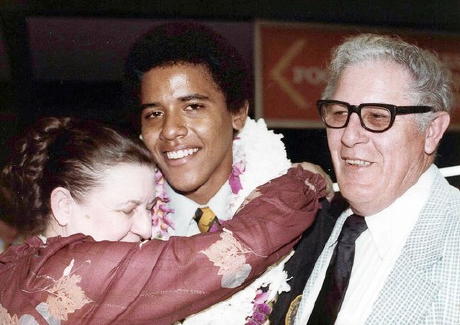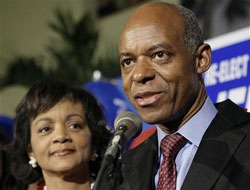
Earl Ofari Hutchinson
AIG ignited the national firestorm of rage with its shell out of $160 to $600 million in tainted bonuses to its tainted executives. But what has gotten almost no attention is a big reason that AIG had to stiff the government and everyone else. That’s the role that the company played in the subprime loan racket; a racket that hurt and still hurts tens of thousands of would be black and Latino homeowners.
The lender’s bait and switch tactics, the deliberately garbled contracts, deceptive and faulty lending, questionable accounting practices, and charged hidden fees, all with the connivance of sleepy-eyed see-no-evil oversight of federal regulators, are well known and documented. Their snake oil loan peddling wreaked havoc with thousands of mostly poor, strapped homeowners. A disproportionate number of them were Latinos and African-Americans.
Enter AIG. It saw a, treasure trove of fast buck riches in the subprime business. AIG dumped $33 billion into bonds and securities that were tied directly to subprime loans. This was nearly four times more than the next insurer, the German-based Allianz SE, had invested in the subprime loans. In fact, AIG was the only US based life insurer that had more than 3 percent of their general account assets in debts tied to subprime loans.
In early 2007 things started to unravel. AIG reported a first quarter loss of more than $2 billion in its subprime mortgage bonds. This set off the first warning bell that AIG could implode. Bond traders openly worried that AIG’s subprime securities losses could drag the market down. They had good reason to worry.
AIG is first and foremost an insurer. And in addition to its plunging bond and security holdings, the company also insured restructured subprime home bonds. The assumption by the subrprime bond holders was that the bonds would lose only a fraction of their value. But by then subprime defaults had piled up to a ten year high and the subprime lending market, that was all of it stocks, bonds and insurance, had badly frayed.
AIG’s stock had plunged 60 percent within the year. The top rating agencies, Moody's and Standard and Poor's, concerned over AIG’s continuing losses on subprime and other mortgage-backed securities, downgraded their credit rating. They demanded that company pay billions to creditors in order to bump back up their ratings. That was billions that AIG by then didn’t have.
AIG was clearly on a non stop down hill roller coaster ride, and many banks and lenders, were heading to perdition with them. AIG briefly flirted with the notion of filing for subprime mortgage lenders bankruptcy.
But there was a better deal to be had courtesy of a panicked then President Bush and Treasury Secretary Henry Paulson. They shoved out tens of billions in cash in what turned out to be only the first installment of cash to save AIG’s hide.
We may never know the full extent of the financial damage that AIG caused in the subprime market. Nor how manyprospective minority homeowners suffered losses both financial and personal from the company’s greed. United for a Fair Economy, a public advocacy research group, in an in-depth study on sub prime lending estimates that the tab for minorities for the dubious blending practices runs to more than $200 billion in lost equity and income during the years AIG and the subprime bank lenders ran amok. The group called the home losses the most massive loss of wealth for African Americans in U.S. history.
The ultimate tragedy is that many blacks who were enticed by the lenders through their web of lies and deceit into taking the risky sub prime loans didn’t really need them. Data from the Home Mortgage Disclosure Act found that about 40 percent of the black subprime borrowers could have qualified for cheaper mainstream mortgages.
But that was the last thing that the subprime lenders, let alone AIG wanted. This would have taken a big bite out of their fantasy level profits. In the end those profits turned out to be a smoke and mirrors illusion just as the subprime illusion was.
AIG happily aided and abetted the banks and lenders in their decade long fast and loose play with the lending rules. Taxpayers are, of course, paying and paying dearly for AIG’s greed and malfeasance. But thousands of black and Latino hoped to be homeowners are also paying for that greed. AIG’s minority racket is yet another sorry chapter in the AIG saga.
Earl Ofari Hutchinson is an author and political analyst. His new book is How Obama Won (Middle Passage Press, January 2009).

















